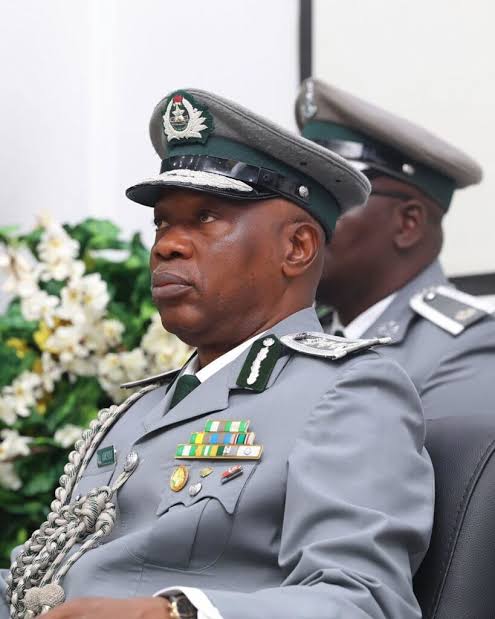Inadequate digital infrastructure impeding customs operations in Africa – C-G
By Martha Agas
The Comptroller-General (C-G) of the Nigeria Customs Service (NCS), Adewale Adeniyi, has identified inadequate digital infrastructure as one of the several technical challenges impeding customs operations across West and Central Africa (WCA).
Adeniyi made the disclosure at the opening of the fourth World Customs Organisation (WCO) Donors Conference for the West and Central African region on Wednesday in Abuja.
The C-G said that the digital gap was affecting seamless processing of declarations and risk management in their operations, while limited interconnectivity between national customs systems was obstructing effective information exchange.
According to him, insufficient technical capacity to implement advanced customs procedures, such as post-clearance audits and authorised economic operator programmes, is also among the technical challenges the region is experiencing.
“We (WCA) have challenges in effectively implementing technical aspects of the African Continental Free Trade Area (AfCFTA) Rules of Origin and other trade facilitation instruments.
“Technical barriers to implementing coordinated border management with other regulatory agencies, fragile borders and the fast-paced evolution of e-commerce,” he said.
He noted that the technical challenges were impeding effective trade facilitation and revenue collection but could be addressed with the right technical support and partnerships.
The C-G stated that Nigeria has made significant progress in addressing these challenges through its various interventions.
“Our experience offers valuable insights into the impact of targeted modernisation initiatives.
“We have successfully deployed the indigenously developed B’Odogwu platform, enhancing our digital capabilities for customs processing.
“We have established technical interfaces with other government agencies involved in trade, facilitating coordinated border management.
“We are deploying advanced scanners at our major ports, significantly enhancing our non-intrusive inspection capabilities,” he said.
According to the C-G, the NCS has trained more than 5,000 officers in specialised technical areas such as valuation, classification, rules of origin, and post-clearance audit.
He stated that the interventions had yielded measurable results: reduced clearance times, a 90 per cent increase in revenue collection (exceeding targets by 20 per cent), and improved compliance rates.
Building on the NCS’s experience and the WCO’s regional needs assessment, the C-G highlighted five priority initiatives that warrant support, including regional interconnectivity and a competency-based human resource management system.
Others include technology-driven illicit trade detection, AfCFTA implementation support, and regional single-window integration.
According to him, the technical challenges faced by customs operations in WCA require a collaborative approach.
The C-G urged all participants at the conference to identify practical, scalable solutions that could be sustained through local capacity building as they engaged in discussions at the conference.
He described the theme of the conference ‘Partner mobilisation around the priority projects of the WCO’s WCA Region: A genuine pledge to meet the modernisation goals and performance targets of member customs administrations’ as apt.
He said that the theme reflected a shared commitment to transforming customs operations through strategic technical interventions, supported by development partners.
In his remarks, Mr Wale Edun, the Minister of Finance and Coordinating Minister of the Economy, highlighted that the conference aligns with the government’s efforts to mobilise resources for programmes and activities aimed at enhancing customs operations within the region.
The conference, he said, provided a valuable platform for the region to not only highlight its needs but also reinforce its commitment to the effective and transparent use of donor resources.
Edun urged all participating customs administrations to engage actively in the discussions, clearly articulate their strategic priorities, and be ready to implement the resulting recommendations with dedication and accountability.
In his remarks, the Secretary of the WCO, Mr Ian Sanders, said that the primary objective of the conference was to strengthen the network and dialogue between the WCO customs administrations and development partners.
Represented by the Deputy Director of the Capacity Building Directorate, Mr Ebenezer Tafili, Sanders added that the conference also aims to raise awareness within the region’s customs administrations on the priorities, initiatives, and approaches of the development partners operating in the region.
According to him, the conference also seeks to coordinate the development of regional and national project initiatives and mobilise funding for their implementation. (NAN) (www.nannews.ng)
Edited by Peter Amine




